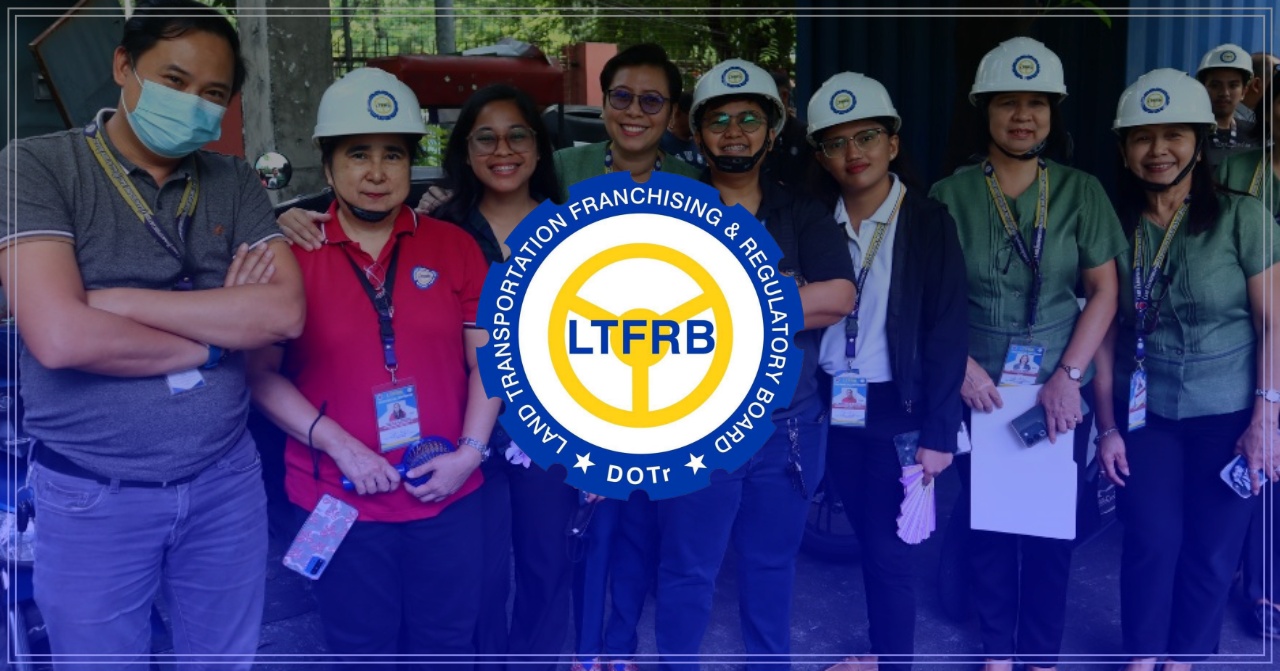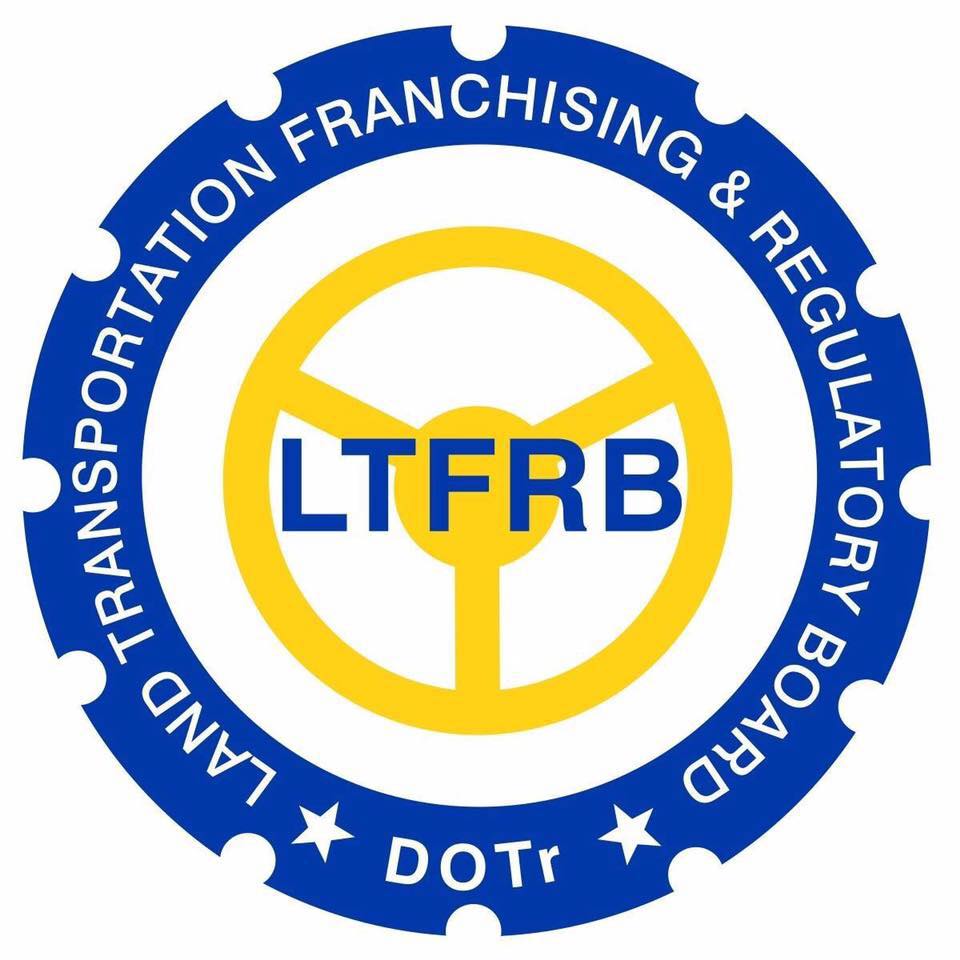The Land Transportation Franchising and Regulatory Board (LTFRB) is here to make public transportation in the Philippines safer, more efficient, and easier for everyone.
Whether you’re a commuter, driver, or operator, knowing what LTFRB does can make your daily travels smoother and more convenient.

About the LTFRB
Under the Department of Transportation (DOTr), LTFRB regulates the public land transportation sector across the Philippines.
This agency’s primary job is to grant and manage franchises for public vehicles, keeping public transport in line with safety, convenience, and fair fare practices.
Whether you rely on jeepneys, buses, or modern ride-hailing services, LTFRB works to keep these modes of transport running smoothly within the law.

Vision
The LTFRB envisions a future where every Filipino can enjoy a modern, efficient, and accessible public transportation system.
It aims to build a safer, greener, and more technologically advanced network that makes commuting and travel a better experience for everyone.
Mission
The LTFRB’s mission is focused on delivering a transportation system that is reliable, safe, and fair for all.
With the interests of both the public and transport operators in mind, LTFRB is committed to crafting policies and regulations that make transportation smoother and more dependable.
Functions and Responsibilities
LTFRB has a broad range of duties, all geared toward elevating public transportation in the Philippines:
- Issuing Certificates of Public Convenience (CPCs):
- These licenses or permits allow public vehicles to operate legally, meaning only qualified operators are permitted to serve the public, fostering safety and accountability.
- Regulating Fares:
- The LTFRB determines fare structures for public vehicles to keep transportation accessible, balancing operational costs with fair rates for commuters.
- Setting Routes and Franchises:
- By controlling where public vehicles can operate, LTFRB helps manage traffic flow, improve connectivity, and reduce travel times.
- Enforcing Compliance:
- LTFRB regularly monitors operators to confirm they meet safety and other legal standards, conducting inspections and issuing sanctions for any violations.
- Handling Public Complaints:
- Through accessible channels, LTFRB addresses public concerns about fares, safety, driver conduct, and other transport-related issues, making sure commuter voices are heard.
- Modernizing Public Transport:
- With programs like the Public Utility Vehicle (PUV) Modernization Program, LTFRB aims to improve the quality of public vehicles for a more sustainable and comfortable travel experience.
Key Programs and Services
LTFRB offers several programs and services that cater to commuters, drivers, and operators alike. Here are some of the most notable ones:
- Public Utility Vehicle (PUV) Modernization Program:
- Goal: To upgrade old vehicles to modern, eco-friendly options, enhancing safety, comfort, and environmental standards.
- Features: This program provides financial assistance for operators, training for drivers, and infrastructure support for modern vehicles.
- Benefit to You: As a commuter, this program promises a safer, cleaner, and more comfortable ride in the near future.
- Transport Network Companies (TNCs) Regulation:
- Purpose: To regulate ride-hailing services like Grab and Angkas, promoting fair competition, safety, and convenience.
- Impact: TNC regulation has created reliable ride options for commuters while keeping services safe and affordable.
- Public Utility Drivers Academy Program:
- Goal: To train drivers on safe driving practices, customer service, and road safety standards.
- Advantage: Better-trained drivers mean a more professional, safe, and pleasant commute for everyone.
- Pantawid Pasada Program (PPP):
- Purpose: To provide financial support to public utility vehicle drivers, particularly during tough economic times or fuel price hikes.
- Impact: By offering support, the program helps keep public transportation services available, giving commuters stable and dependable travel options even during difficult periods.
- Oplan Balik Eskwela Program:
- Objective: To manage the surge in passenger numbers during school term starts and ends.
- Impact: This program helps keep things moving smoothly for students and parents during peak school travel times, reducing stress and ensuring a better travel experience.
- Anti-Colorum Campaign:
- Goal: To curb the operation of unauthorized, unlicensed vehicles, commonly known as “colorum” vehicles, which operate illegally and pose safety risks.
- Outcome: By removing unauthorized vehicles from routes, this campaign helps keep public transportation safe and fair.
Video: LTFRB Prepares for Phased Implementation of Barrier-Free Tollway System
The Land Transportation Franchising and Regulatory Board (LTFRB) is preparing for the phased implementation of a barrier-free tollway system in the Philippines. This means that drivers will no longer need to stop at toll booths. The LTFRB is working with tollway operators to ensure a smooth transition to this new system. The goal is to make travel more efficient and convenient for drivers. This initiative is a significant step towards modernizing the country’s transportation infrastructure.
Recent Updates
LTFRB Ensures Safe and Comfortable Travel During Undas
The Land Transportation Franchising and Regulatory Board (LTFRB) worked to ensure safe and comfortable travel for passengers during Undas. LTFRB personnel were deployed to transport terminals nationwide to address passenger concerns and conduct inspections. The agency checked for essential safety features, including clean and working restrooms, fire extinguishers, proper ventilation, dash cams, CCTV cameras, and priority lanes for people with special needs. The LTFRB is committed to providing reliable and safe public transportation. These efforts are part of the agency’s commitment to improving the travel experience for Filipinos.
President Ferdinand ‘Bongbong’ Marcos Jr. has declared October 19 of each year as Transport Cooperative Day. The declaration highlights the government’s Transport Cooperative Program and encourages public utility vehicle (PUV) drivers and operators to join cooperatives. This initiative aims to strengthen the public transportation sector and provide more opportunities for drivers and operators. The government is committed to supporting the growth of transport cooperatives. This day is a reminder of the importance of cooperation in improving public transportation in the Philippines.
The Land Transportation Franchising and Regulatory Board Regional Franchising and Regulatory Office 10 (LTFRB RFRO 10) conducted terminal inspections during the Undas observance. The inspections aimed to ensure passenger safety and uphold service standards. The LTFRB RFRO 10 monitored the operations of public utility vehicles (PUVs) and verified compliance with safety protocols. The agency also addressed any issues impacting passengers. The LTFRB emphasized the importance of vigilance and cooperation from both operators and passengers to maintain a safe and orderly holiday travel experience.
The Land Transportation Franchising and Regulatory Board Region XII (LTFRB XII) recently held a three-day workshop in Koronadal City to help the municipalities of Kalamansig, Lebak, and Palimbang in Sultan Kudarat craft their Local Public Transport Route Plans (LPTRPs). The workshop provided technical working groups (TWGs) from each municipality with the tools and knowledge to develop sustainable and efficient transport route plans. The LTFRB XII emphasized the importance of the LPTRPs in improving public transportation and uplifting the lives of communities in Sultan Kudarat. The workshop included presentations, hands-on exercises, and initial reviews of draft LPTRPs. The LTFRB XII is committed to supporting the development of a modern and efficient public transportation system in the region.
Why the LTFRB Matters to You
The LTFRB is here to support a better commuting experience by making public transportation safer, more reliable, and more accessible.
Whether you are a commuter looking for a safer and smoother ride, a driver aiming to improve your skills, or an operator looking for franchise support, the LTFRB offers services designed to meet these needs.
For those considering entering the public transportation sector, LTFRB’s programs make it simpler to operate legally and professionally, paving the way for a well-regulated and accessible transportation network.